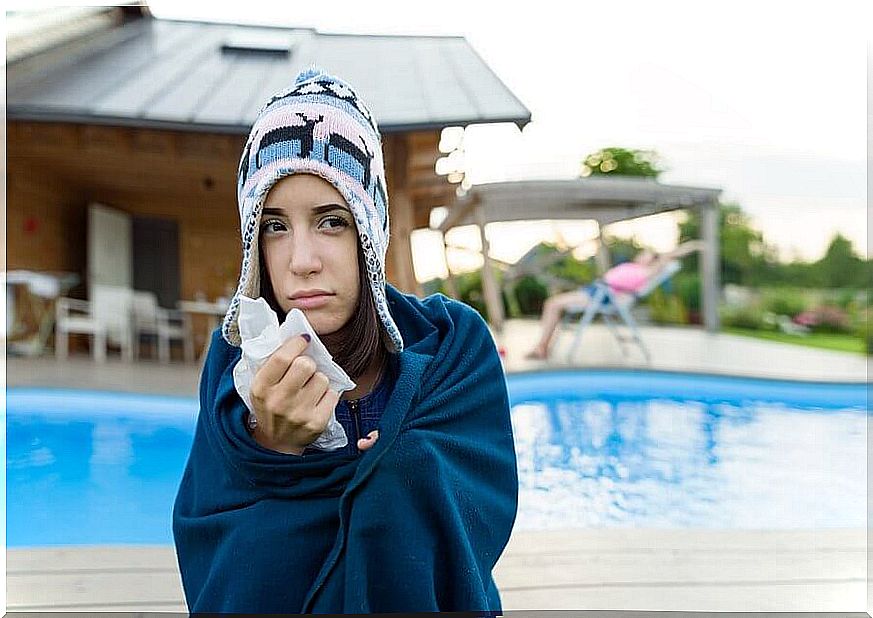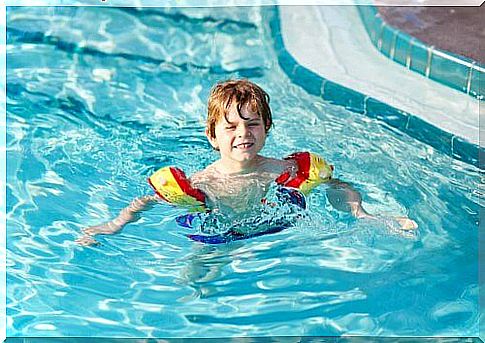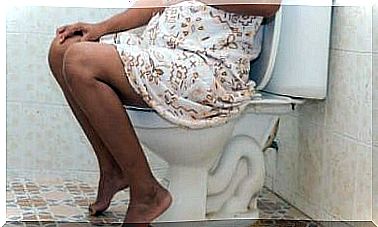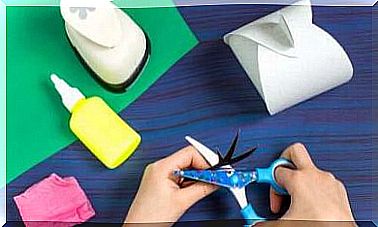Can Pool Chlorine Cause Allergies?

With the arrival of summer and vacations, we look for options to refresh ourselves and spend unforgettable moments with the family. However, sometimes diseases can deceive us. In this article, we’ll tell you if pool chlorine can cause allergies, as well as how to prevent and treat them.
Swimming pool chlorine can cause respiratory allergies
For many people, the chlorine smell is related to happy days at the pool, family fun, or fun swimming lessons. However, for others it can mean respiratory problems and allergies.
While it’s true that this element is used to keep water in good condition and keep bacteria away; it is also true that it is a very strong and unhealthy product.
Pool chlorine can cause allergies in adults and children. For babies, when they are very young, chlorine can increase their risk of suffering from lifelong respiratory illnesses such as asthma.
Whether the pool is indoor or outdoor, the consequences are similar. The likelihood of suffering from these types of lung-related problems will depend on how long a person stays in the water, how often they enter the pool, or how much chlorinated water they ingest.
The younger the children, the more vulnerable they are to developing allergic reactions to this product. One of the first symptoms is irritation of the nostrils and eyes. They may also have coughing, vomiting, and breathing problems, such as feeling short of breath.

Pool chlorine can cause skin allergies
When it’s hot, we just think about cooling off anyway. And if we’re lucky enough to have a pool at home or at a friend’s house, we feel like we’re the happiest people in the world.
However, soaking in chlorinated water can have consequences for our skin. This is because the product that is used to clean the pool, and that is left in it, also causes dryness and allergic reactions.
The most affected areas are the mucous membranes, that is, the eyes, the nose and even the genitals. The famous “red eyes” are the result of spending many hours in the pool, a clear sign of what chlorine does to our dermis.
Chlorine increases the dryness of the skin, especially if we bathe in a pool every day. Thus, it is necessary to be careful that the skin is protected from external agents with a kind of ‘protective layer’.
This layer can be reduced, altered or eliminated due to very aggressive chemicals. This happens mainly on very sensitive and fair skin.
And not only that, there is also a negative effect on hair – especially if it’s light – and on nails. Who should we blame?
Chlorine would be our first response, but we have to go a step further. In fact, only some of its components are harmful to our health: copper sulfate, iron and metals.
How to avoid allergic reactions to chlorine
As chlorine is used to disinfect the pool, avoid exposure to certain bacteria, such as Escherichia coli , and keep the water in good condition for longer, we need to change certain habits if we are to reduce the allergies or reactions they produce:
- Do not linger in the pool for more than one consecutive hour.
- Wear protective glasses, ear plugs and a cap.
- Take a good shower when you get out of the pool and wash your pool suits thoroughly.

- don’t swallow water
- Try going to the beach or the river when you’re on vacation – instead of always choosing to go to the pool.
- Prefer public swimming pools that are not too crowded or have few users.
- Ask about cleaning and maintaining the water.
- For your home pool, use milder chlorine formulas.
It’s true that pool chlorine can cause allergies in some people. But if we make proper use of this product, we will enjoy a summer without negative consequences for our health.









